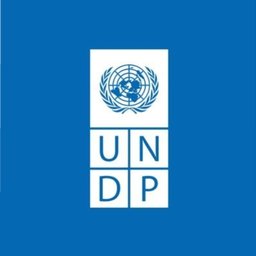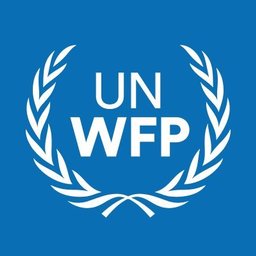Job Opportunities in Turkey

October 11, 2024
United Nations Development Programme (UNDP)
Ankara
OTHER
Programme Analyst (Nationals Only)
Job Identification
21336
Locations
Ankara, Türkiye
Posting Date
10/11/2024, 10:54 AM
Apply Before
10/18/2024, 10:59 PM
Job Schedule
Full time
Agency
UNDP
Grade
NOB
Vacancy Type
Fixed Term
Practice Area
Management
Bureau
Regional Bureau for Europe and the CIS
Contract Duration
1 Year with Possibility for extension
Education & Work Experience
Master's Degree - 2 year(s) experience OR Bachelor's Degree - 4 year(s) experience
Required Languages
Fluency in Turkish and English
Desired Languages
Knowledge of another UN language
Vacancy Timeline
1 Week
Mobility required/no mobility
no mobility required
Background
Diversity, Equity and Inclusion are core principles at UNDP: we value diversity as an expression of the multiplicity of nations and cultures where we operate, we foster inclusion as a way of ensuring all personnel are empowered to contribute to our mission, and we ensure equity and fairness in all our actions. Taking a ‘leave no one behind’ approach to our diversity efforts means increasing representation of underserved populations. People who identify as belonging to marginalized or excluded populations are strongly encouraged to apply. Learn more about working at UNDP including our values and inspiring stories.
UNDP does not tolerate sexual exploitation and abuse, any kind of harassment, including sexual harassment, and discrimination. All selected candidates will, therefore, undergo rigorous reference and background checks.
With a current annual delivery of around US$40 million, UNDP Türkiye operates in a complex and challenging context. Türkiye, a high middle-income country with a GDP per head of US$12,986 in 2023 and ranks 45th of 193 countries in the 2024 human development index. It is both an influential donor and development partner and a selective recipient of development assistance. Articulating UNDP’s value-added in this context is a continuous challenge.
Over the past decade, UNDP has supported the country in hosting the 3.7 million Syrians who have sought refuge from conflict at home; here, UNDP has promoted the resilience of both refugees and Turkish host communities. In 2023, in the wake of the devastating earthquakes that killed 53,537 people across 11 southern provinces, UNDP spearheaded socio-economic recovery efforts, which are still ongoing.
UNDP other programming has traditionally focused on four main areas: governance; social inclusion; sustainable growth; and environmental protection and climate change. The Social Inclusion and Governance Portfolio (SIG) focuses on addressing inequality and vulnerability, in line with the core principle of “leaving no one behind.” Among the chief aims of the portfolio are reducing development disparities between rural and urban areas; increasing the role of women as economic actors and leaders while reducing the burden of unpaid care; fostering better living standards for the Roma community and other marginalized groups; and promoting the full inclusion of the elderly and persons with disabilities in all aspects of life. The portfolio applies digitalization and other modern technologies to bridge development gaps.
Improved governance mechanisms, including promoting inclusiveness, accountability and civic engagement, are seen as vital contributors to the quest for equality. The portfolio works to strengthen social protection systems, promote equal opportunities for all and ensure equitable access to resources while supporting human rights and a transparent and responsive public administration. Work at the village, local community and municipal level is a priority for the portfolio.
UNDP currently leads two of the six Results Groups under the UNSDCF and participates actively in the other four; with UNHCR, UNDP also co-chairs the Regional Refugee and Resilience Plan (3RP), uniting humanitarian and development efforts. The new UNDP Country Programme Document is currently in formulation for 2026-2030 will reflect these priorities, in line with the new UN Sustainable Development Cooperation Framework (UNSDCF), which is also in preparation.
Owing to the country’s high middle-income status, UNDP mobilizes almost all of its resources in-country. Türkiye’s has been a candidate for European Union (EU) membership since 1999, so the EU is UNDP’s main source of funding, though availability and substantive waxes and wanes depending on relations between the EU and Türkiye. Other funding sources include government cost-sharing; lending from IFAD, the World Bank and other international financial institutions; a small number of bilateral donors focused on the refugee crisis; and the private sector. UNDP Türkiye has one of the region’s most diverse and creative portfolios of partnerships with private-sector companies.
Position Purpose:
Under the guidance and direct supervision of the Deputy Resident Representative (DRR) or ARR(P), the Programme Analyst is responsible for management of the UNDP Social Inclusion and Governance Portfolio (SIG) programme. The Programme Analyst analyzes political, social and economic trends; leads formulation, management and evaluation of programme activities within his/her portfolio; and provides policy advice to senior management.
The SIG Programe Portfolio will specifically focus but not limited to the following areas:
- Promote local socio-economic development with a particular emphasis on reducing rural poverty and exclusion and advancing equitable regional development;
- Address inequalities, focusing on overcoming deficits in employment and living standards for disadvantaged and marginalized groups and areas;
- Advance women’s economic empowerment and promote the “care economy,” in theory and practice;
- Expand and improve gender-sensitive public services related to employment, skills, education, health, social security, and care for vulnerable groups (e.g. youth, disabled, elderly), while empowering women and fostering social cohesion.
- Strengthen governance processes and institutional capacities, particularly at the local level, to advance inclusiveness, respect for rights and public participation;
- Advance the rule of law, human rights and responsive, accountable public administration at all levels, while promoting women's empowerment and civic engagement; and
- Apply digital tools and innovative solutions to bridge social and spatial disparities.
UNDP adopts a portfolio approach to accommodate changing business needs and leverage linkages across interv
Duties and Responsibilities
Substantively contribute to formulation and implementation of UNDP programme strategies and policies:
- Contribute to analysis of the political, social and economic situation in the country; and contribute collaborative inputs to the UN Common Country Assessment and Sustainable Development Cooperation Framework (UNCCA and UNSDCF) as well as to the preparation/revision of the Country Programme Document (CPD), Integrated Work Plan (IWP) and other strategic documents.
- Contribute to operationalizing UNSDCF/ CPD in collaboration with the main partners and other UN Agencies.
- Ensure implementation of relevant programme Standard Operating Procedures (SOPs) to ensure the effectiveness CO business processes.
- Analyze and synthesize proposals in assigned programme areas.
- Contribute to the design and formulation of the CO programme, translate UNDP priorities into local interventions, and oversee program implementation with the implementing partners within the Social Inclusion and Governance Portfolio.
- Oversee planning, budgeting, implementation and monitoring of the Social Inclusion and Governance Portfolio and track use of financial resources in accordance with UNDP rules and regulations. Ensure digital technology solutions in programme implementation are managed towards scalability and sustainability in line with UNDP’s digital standards.
- Ensure effective application of results-based management tools and track achievement of strategic results.
- Ensure the effective use of data in programme implementation, and eensure effective monitoring, evaluation and learning on programme impact, develops trends analysis for future informed and anticipatory programming.
- Follow up on audit recommendations and ensure the implementation of management responses.
- Prepare and aggregate reports on activities, outputs and outcomes, including donor and corporate reports such as ROAR.
- Maintains and develop partnerships with central/local, implementing partners, civil society and other stakeholders.
- Support to the rollout of new initiatives and programmes including through presentation of the project to LPAC; finalize contribution agreements; and determine required revisions.
- Develop partnerships with the UN Agencies, international financial institutions (IFIs), government institutions, donors, private sector and civil society in assigned programme/ thematic areas.
- Identify strategic programme areas of cooperation including for joint programming.
- Analyze and research information on donors, prepare substantive briefs on possible areas of cooperation, identify opportunities for initiation of new projects, and substantively contribute to Country Office resource mobilization efforts.
- Support development of the Portfolio and Country office pipeline including through the design of Programme/Project documents, concept notes, proposals, and cross-sectoral coordination in assigned areas to bring resources for projects.
- Identify policy-driven issues; and identify and synthesize best practices and lessons learned directly linked to programme country policy goals.
- Establish/strengthen national and international advocacy networks. Implement relevant, high -impact advocacy with key partners.
- Provide substantive support in the development of policies and institutions to address country problems and needs in collaboration with the Government and other strategic partners.
- Provide inputs so that policy advisory contributes to inclusive societal digital transformation
- Provide sound contributions to knowledge networks, communities of practice, and digital knowledge platforms.
- Organize training for the operations/ projects staff on programme related matters in assigned areas.
Supervisory/Managerial Responsibilities: Supervises programme and project staff within SIG Portfolio
Competencies
Core:
- Scale up solutions and simplifies processes, balances speed and accuracy in doing work
- Offer new ideas/open to new approaches, demonstrate systemic/integrated thinking
- Go outside comfort zone, learn from others and support their learning
- Adapt processes/approaches to new situations, involve others in change process
- Able to persevere and deal with multiple sources of pressure simultaneously
- Is facilitator/integrator, bring people together, build/maintain coalitions/partnerships
- Facilitate conversations to bridge differences, considers in decision making
Cross-Functional & Technical:
Business Management - Results-based Management:
- Ability to manage programmes and projects with a focus at improved performance and demonstrable results
- Ability to plan, organize, prioritize and control resources, procedures and protocols to achieve specific goals
- Ability to select, prioritize and control the organization’s programmes and projects, in line with its strategic objectives and capacity; ability to balance the implementation of change initiatives and the maintenance of business-as-usual, while optimizing return on investment
- Ability to provide managers and key stakeholders with regular feedback on the consistency or discrepancy between planned and actual activities and programme performance and results
- Ability to inspect, cleanse, transform and model data with the goal of discovering useful information, informing conclusions and supporting decision-making
- Ability to use objective problem analysis and judgement to understand how interrelated elements coexist within an overall process or system, and to consider how altering one element can impact on other parts of the system
- Project Quality Assurance
Required Skills and Experience
Education:
- Advanced university degree (master's degree or equivalent) in Business Administration, Economics, Development Policy, Social Sciences, or a related field is required or
- A first-level university degree (bachelor’s degree) in combination with an additional two years of qualifying experience will be given due consideration in lieu of the advanced university degree
Experience:
- Minimum of 2 years (with master’s degree) or 4 years (with bachelor’s degree) of relevant experience at the national and/or international level in providing management advisory services, hands-on experience in design, monitoring and evaluation of development portfolios and projects in a related thematic area is required.
- Experience in the use of computers, office software packages (MS Word, Excel, etc.), database packages, and web-based management systems such as ERP, also GIS, and other innovative/tech instruments is required.
- Experience in local and regional development, social protection and public administration
- Experience in leading UNDP programmatic work, including project design, budget and contract management and procurement
- Experience in leading and motivating multidisciplinary teams
- Demonstrated experience and skills in advocacy, outreach, partnership building and resource mobilization
- Experience in applying digital tools and innovative technologies for effective service delivery.
- Experience in establishing strategic partnerships with government, international organizations, academia and CSOs.
- Fluency in Turkish and English is required
- Knowledge of another UN language is desirable
Please note that continuance of appointment beyond the initial 12 months is contingent upon the successful completion of a probationary period.
Disclaimer
Applicant information about UNDP rosters
Note: UNDP reserves the right to select one or more candidates from this vacancy announcement. We may also retain applications and consider candidates applying to this post for other similar positions with UNDP at the same grade level and with similar job description, experience and educational requirements.
Non-discrimination
UNDP has a zero-tolerance policy towards sexual exploitation and misconduct, sexual harassment, and abuse of authority. All selected candidates will, therefore, undergo rigorous reference and background checks, and will be expected to adhere to these standards and principles.
UNDP is an equal opportunity and inclusive employer that does not discriminate based on race, sex, gender identity, religion, nationality, ethnic origin, sexual orientation, disability, pregnancy, age, language, social origin or other status.
Scam warning
The United Nations does not charge any application, processing, training, interviewing, testing or other fee in connection with the application or recruitment process. Should you receive a solicitation for the payment of a fee, please disregard it. Furthermore, please note that emblems, logos, names and addresses are easily copied and reproduced. Therefore, you are advised to apply particular care when submitting personal information on the web.
We regret to inform you that this job opportunity is no longer available
Latest Job Opportunities

October 13, 2024
FSL
Sosyal Medya İçerik Üreticisi ve Marka Temsilcisi (Kadın)
Adapazarı
OTHER
View Details
Similar Jobs

September 20, 2024
World Food Programme
Programme Associate (CP Ops&CBT) G6
Ankara
OTHER
View Details
September 9, 2024
World Business Lenders, LLC
Financial Audit Analyst - Ankara, Turkey
Ankara
OTHER
View Details
September 23, 2024
United Nations Development Programme (UNDP)
Programme Analyst - NOA - Local post for Nationals of Turkiye
Ankara
View Details
September 23, 2024
United Nations Development Programme (UNDP)
Programme Analyst - NOB - Local post for Nationals of Turkiye
Ankara
View Details
September 12, 2024
Citi
Anti-Money Laundering Post Transaction Monitoring Senior Analyst
İstanbul
View Details
September 11, 2024
United Nations Development Programme (UNDP)
Research Analyst - Home based
İstanbul
View DetailsNew Jobs from This Company

October 11, 2024
United Nations Development Programme (UNDP)
Travel and Events Associate
İstanbul
OTHER
View Details
September 30, 2024
United Nations Development Programme (UNDP)
Project Associate
Ankara
OTHER
View Details
September 23, 2024
United Nations Development Programme (UNDP)
Programme Analyst - NOA - Local post for Nationals of Turkiye
Ankara
View Details
September 23, 2024
United Nations Development Programme (UNDP)
Programme Analyst - NOB - Local post for Nationals of Turkiye
Ankara
View Details
September 11, 2024
United Nations Development Programme (UNDP)
Research Analyst - Home based
İstanbul
View Details